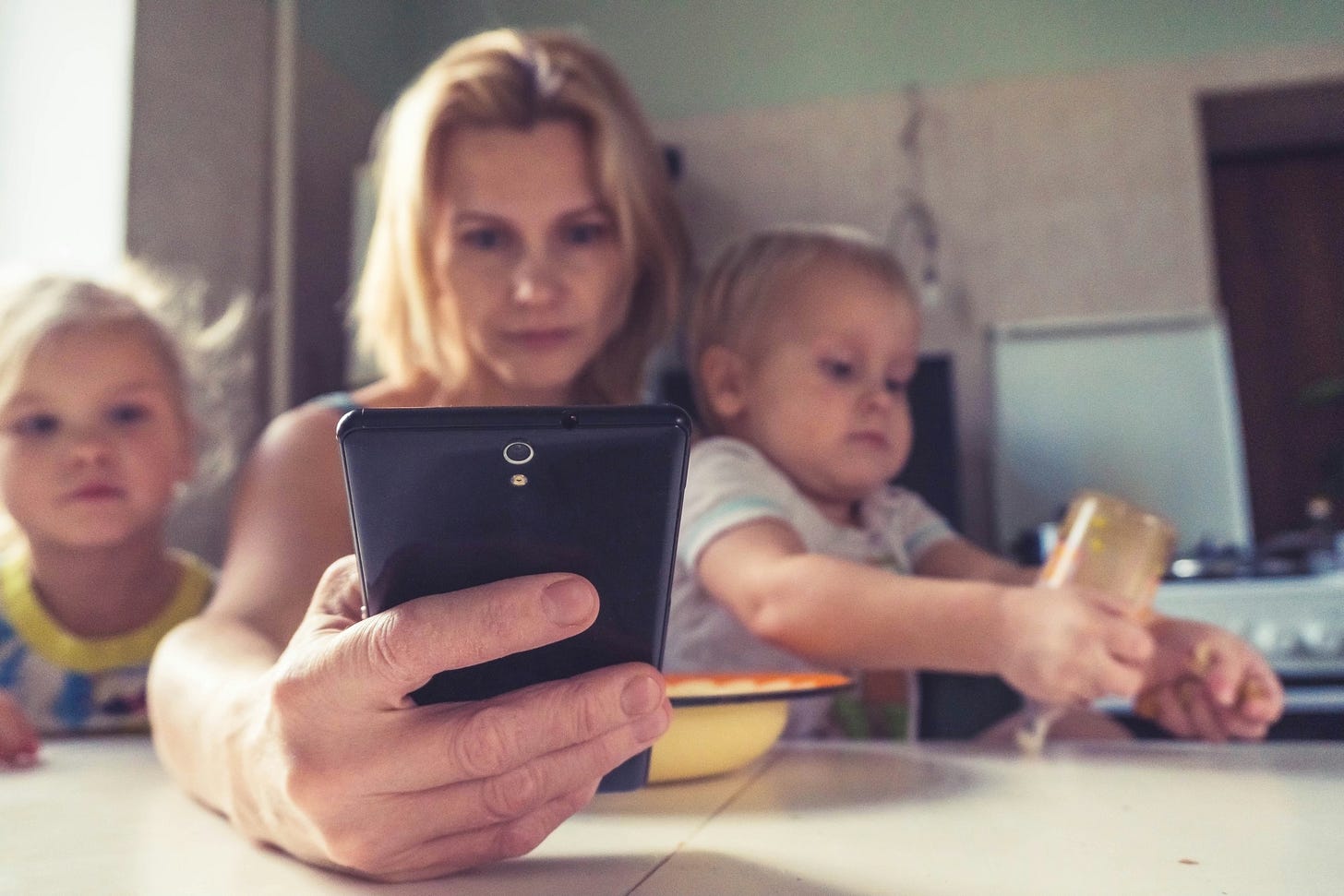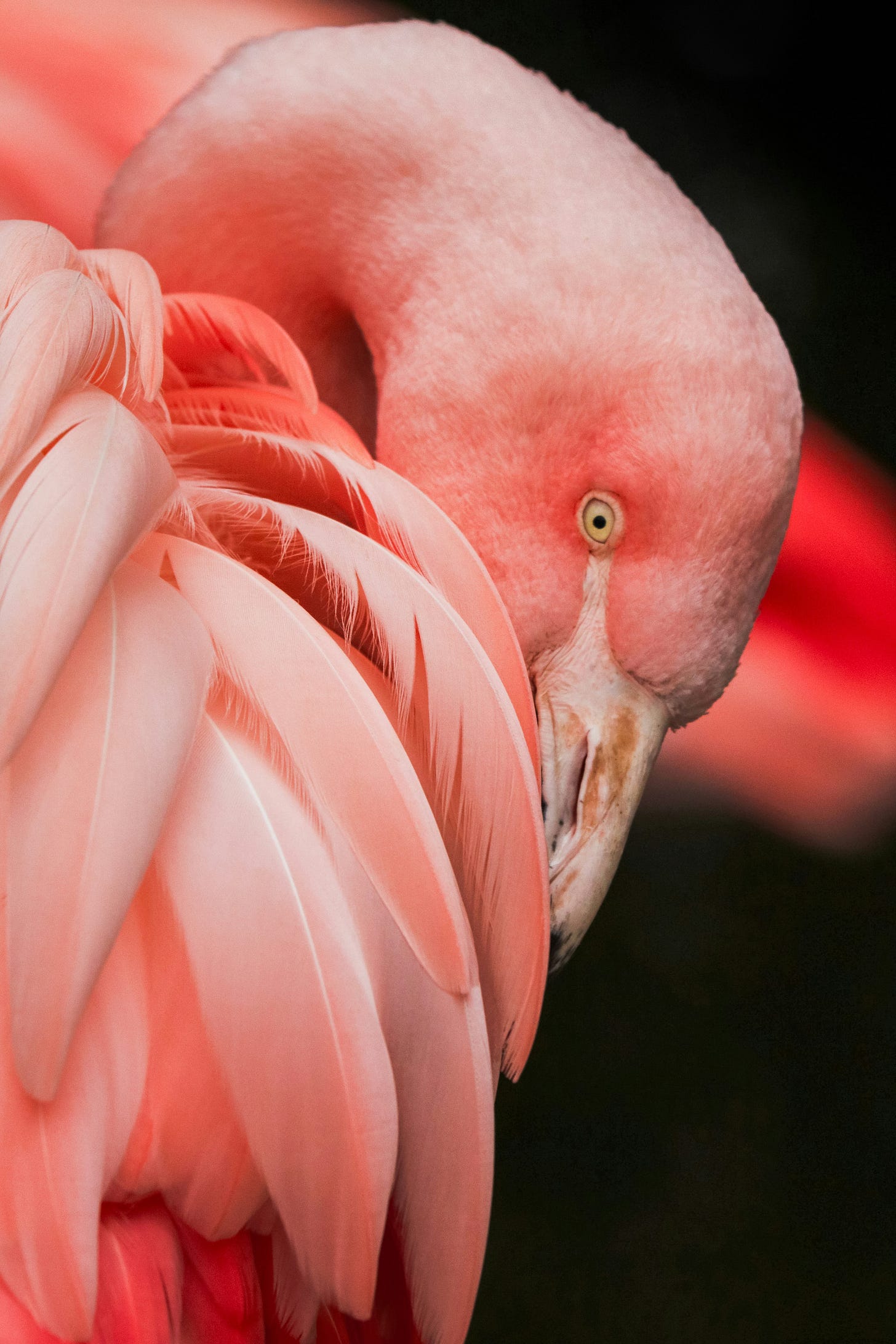Why can’t mums work without having to justify being away from their kids?
I’m not buying it - and you don’t need to convince me, anyway.
Happy New Year! And congratulations - you’ve survived the Christmas holidays, and dare I say it, are looking forward to getting back to work.
But then you feel bad for thinking that because you should be cherishing every second you spend with your kids, especially at Christmas. So then you justify it by reasoning, “Working makes me a better mum!”
It’s a statement I’ve seen on many a LinkedIn post - a mum who’s busy keeping her hard earned career on track, but isn’t as present at home and with her kids as she’d like (or as society has made her feel she should want). She’s feeling the mum guilt, and feels she needs to justify why she spends more time with her work colleagues than the human beings that came from her body.
Work gives her a bigger purpose and makes her feel validated in terms of her achievements and place in the world, she’ll usually write in her post, so having that outlet means that she’s more fulfilled, and makes her better appreciate the (little) time she spends with her family.
Obviously I can’t know the personal situation behind all these posts, but what I do know is, the reason she’s written it is because she feels judged for choosing her career over her kids, and feels she needs to link one back to the other.
What concerns me isn’t the woman’s decision to give everything to her work, but the judgment that has forced her to try and justify herself publicly. While having both parents work is a financial necessity for a lot of people, if it's not, I think it's enough to choose to work because you want to work - because you enjoy it. Because it makes you more excited about your day than going to toddler groups and cooking chicken nuggets. I don't think you need to justify that working makes you a better mum. You never see men posting about how working makes them better dads, in fact, you see the opposite - men tend to post about how working less makes them a better dad.
To be honest, I would probably be a better mum if I didn't work. I’d be less tired and stressed, and when my kids come home from school and nursery, I wouldn’t feel like the last thing I want to do is referee their nightly wrestling matches. I wouldn’t let them zone out in front of the TV instead of taking them upstairs for a bath because I’m too knackered to face the splashfest. On the days I don't work, I am always checking my emails so I don't miss anything, and it’s not often that I sign up for school activities where they need parent volunteers.

But work - even though I do it part-time and from home - has been part of me “getting my pink back”. It’s a little known fact of nature that flamingos, known for their ostentatious pink hue, actually lose their trademark colour when looking after new chicks. Feeding and taking care of them is so intensive they fade to white, like a muted version of themselves. As their young become more independent and learn to take care of them, the pink gradually returns. I think without work, I’d still be that pale shade of grey. It doesn’t make me a better mum, but it makes me a better person.

The trend of working mums feeling like they need to publicly justify their choices also got me thinking of my own mum, who I video call every week in Australia. She immigrated there from the Philippines in 1983 aged 29, marrying my dad and having me the same year. Her intention was to escape her difficult upbringing as one of 13 kids - but she didn't realise how isolated she'd be.
My dad worked away at a mine so she spent most of that first year living alone with my Italian grandparents, who didn't speak English. My dad came back briefly for my birth but then my mum was on her own again, continuing to struggle with the language barrier. He eventually finished his contract and found work locally, to her relief, but then later, she found being a stay at home mum of two very restrictive financially - money was often a source of tension, and she found herself having to ask permission to buy non-essential things like clothes.
When I was 10 and my sister was six, she got a part-time job cleaning the primary school we attended, and a whole new world opened up for her of financial agency and freedom. She took on the responsibility of paying our Catholic school fees - and she was able to buy the clothes and personal items she wanted. I saw my parents' relationship become more equal, as my dad stopped seeing her as a dependent, and respected the financial contribution she was making.
My mum then got another part-time job as our school's crossing supervisor - lollipop lady as we say in Australia! - through which she made good friends with the other lollipop ladies from neighbouring schools. With her readiness to make and hear a joke, the kids loved her - she got loads of Christmas presents every year. Her third and final part-time job as an Avon lady sealed her transition into social butterfly - she'd drop brochures off at the stores in town on her way to and from her other jobs, and spend hours doing deliveries as she'd get carried away chatting with her customers.
Working changed my mum's life, financially, socially and personally, which is why I've always valued my own ability to work. On my own maternity leaves with my two children, I didn't like the feeling of invisibility, lack of socialisation and feeling of being a dependent. Work perhaps came to dominate my upbringing - with my parents always putting it first, which is something I have tried to move away from, but only because of the class mobility they created for me and my sister.
I don't like to think what our lives would have been like had my mum not worked. She didn't work because it made her a better mum, but because it gave her an identity outside the home and a valuable, recognisable position in our local community. It allowed her to be seen as an individual, with a purpose that was all her own. We had more money to do things which made us happy, so I guess, yes, in that sense, working made her a better mum, just as being creatively fulfilled means I don’t resent being a mum, which I suppose makes me better at that too.
But I wish we could get to a place where we don’t have to give the outside world a reason for why we don’t want to spend every waking hour with our kids. The only person that has to be comfortable with the consequences of your decision is yourself (and your partner if you have one). You have kids and want to work full-time, knowing that comes with sacrifices at home? Do it. Choose to work part-time so you can be around your kids, but realise it may be a juggle to balance it all? Make it happen. Want to stay home, and not miss any of those precious early years, risking a challenging career comeback? Embrace it.
Just don’t write a LinkedIn post about how working makes you a better mum. I’m not buying it - and you don’t need to convince me, anyway.


